Russians involve children and young people in ‘patriotic’ games and programmes that effectively prepare them for military service. This practice has been particularly active since the start of the war against Ukraine in 2014. In 2016, the Yunarmiya movement was created — an example of the systematic militarisation of young people, which now numbers 1.85 million, including more than 32,000 children in the territories of Ukraine temporarily occupied by Russia (TOT). According to Vladyslav Holovin, head of the organisation, more than 120,000 Yunarmiya graduates serve in the Russian Armed Forces or its security forces, with some participating in the so-called special military operation (SVO).
Particular attention is paid to children from the TOT of Ukraine. Their militarisation serves several key objectives:
● to form a "new" identity that will weaken or even completely erase their connection with Ukraine and foster loyalty to Russia. These processes are often covered up with rhetoric about countering terrorism and extremism, when children and young people from TOT are presented as a potential threat to the Kremlin's ideological policy;
● to train and involve them in military ideas and practices for use in combat operations against Ukraine, as they are seen as a resource for achieving Russia's strategic goals;
● create potential barriers to mutual understanding and integration of children from TOT after the de-occupation of these territories by Ukraine.
Since 2022, these processes have intensified significantly. Pro-Russian military-patriotic events in the TOT are held both during the school year and during the summer holidays. In addition, children are taken to Russia for systematic military training. Some of these projects have been implemented for a long time, in particular, the Guardsman military training camp.
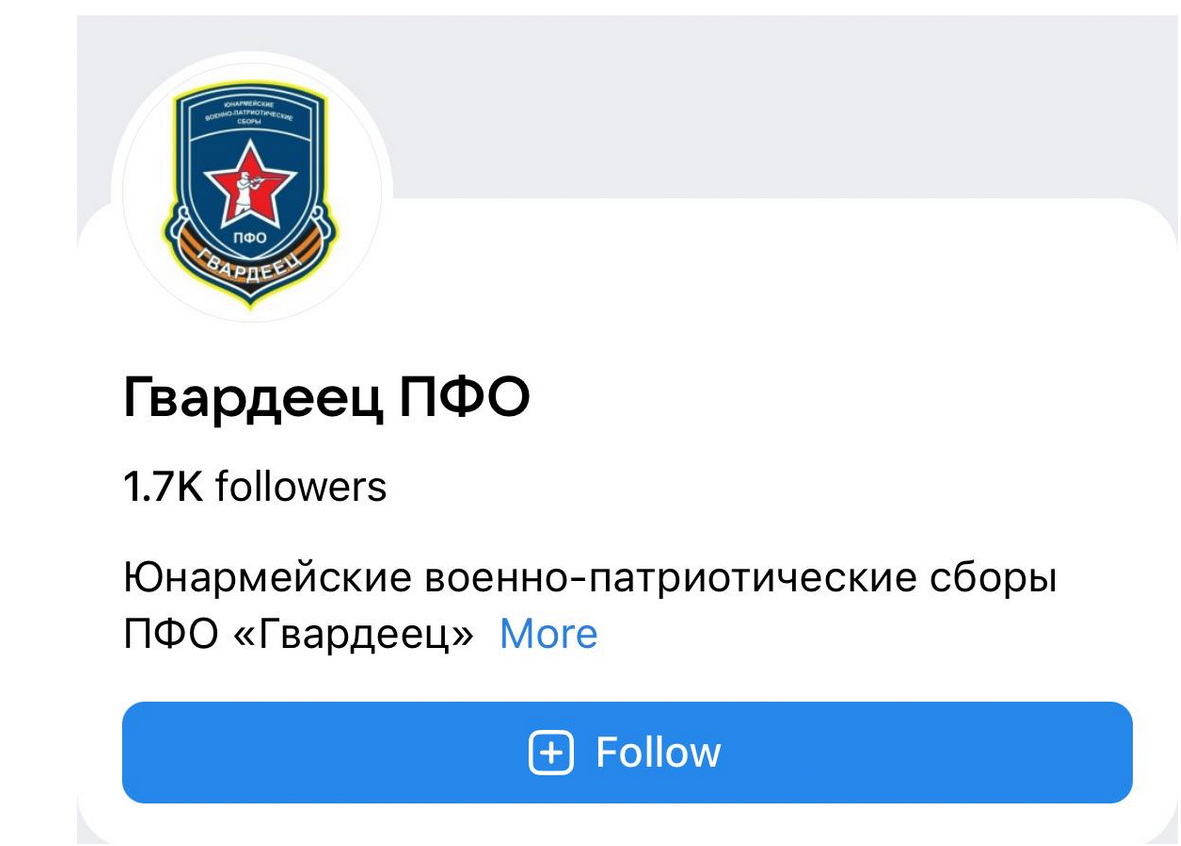
How Russia takes children from TOT to the Guardsman military-patriotic camp
The Yunarmiya military-patriotic training camps Guardsman (Russian: "Гвардеец") have been held in the Volga Federal District of the Russian Federation (VFD) since 2013. Children from the TOT are regularly taken there: from the Autonomous Republic of Crimea, the city of Sevastopol, and the Donetsk, Luhansk, and Zaporizhzhya Regions. According to Russian media reports, more than 5,000 young people took part in the project, including children from the TOT.
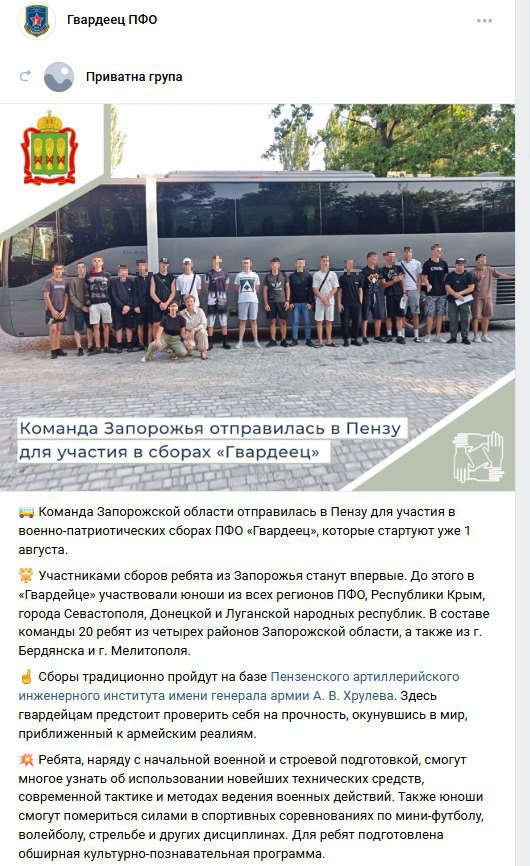
Every year, the meeting is held at the Penza Artillery Engineering Institute, a branch of the General A.V. Khrulev Military Academy of Logistics of the Russian Ministry of Defence.
The Guardsman project was initiated by Mikhail Babich, Plenipotentiary Representative of the President of the Russian Federation in the Volga Federal District, with the support of the Ministry of Defence of the Russian Federation, DOSAAF (Volunteer Society for the Assistance to the Army, Aviation, and Navy) and the governments of the Nizhniy Novgorod and Penza Regions.
Today, the meetings are held under the personal patronage of Igor Komarov, Plenipotentiary Representative of the President of the Russian Federation in the Volga Federal District, and Oleg Melnichenko, Governor of the Penza Region, who lend weight and public attention to the project.
Melnichenko personally opens the meeting and meets the teams, including teenagers from TOT, and presents awards.
"The project has long established itself as an effective tool for preparing for service in the Armed Forces of the Russian Federation. It has become a training ground for the army, the Ministry of Internal Affairs, the Ministry of Emergency Situations, the FSB, and the Russian Guard," Melnichenko said in August 2022.
The programme of the meeting includes familiarisation with army life, studying weapons and basic combat skills. Thus, the Russian authorities use Guardsman as a tool for the systematic militarisation of children, using administrative resources to form future personnel reserves.
Who participates in the training: recruitment of children from TOT
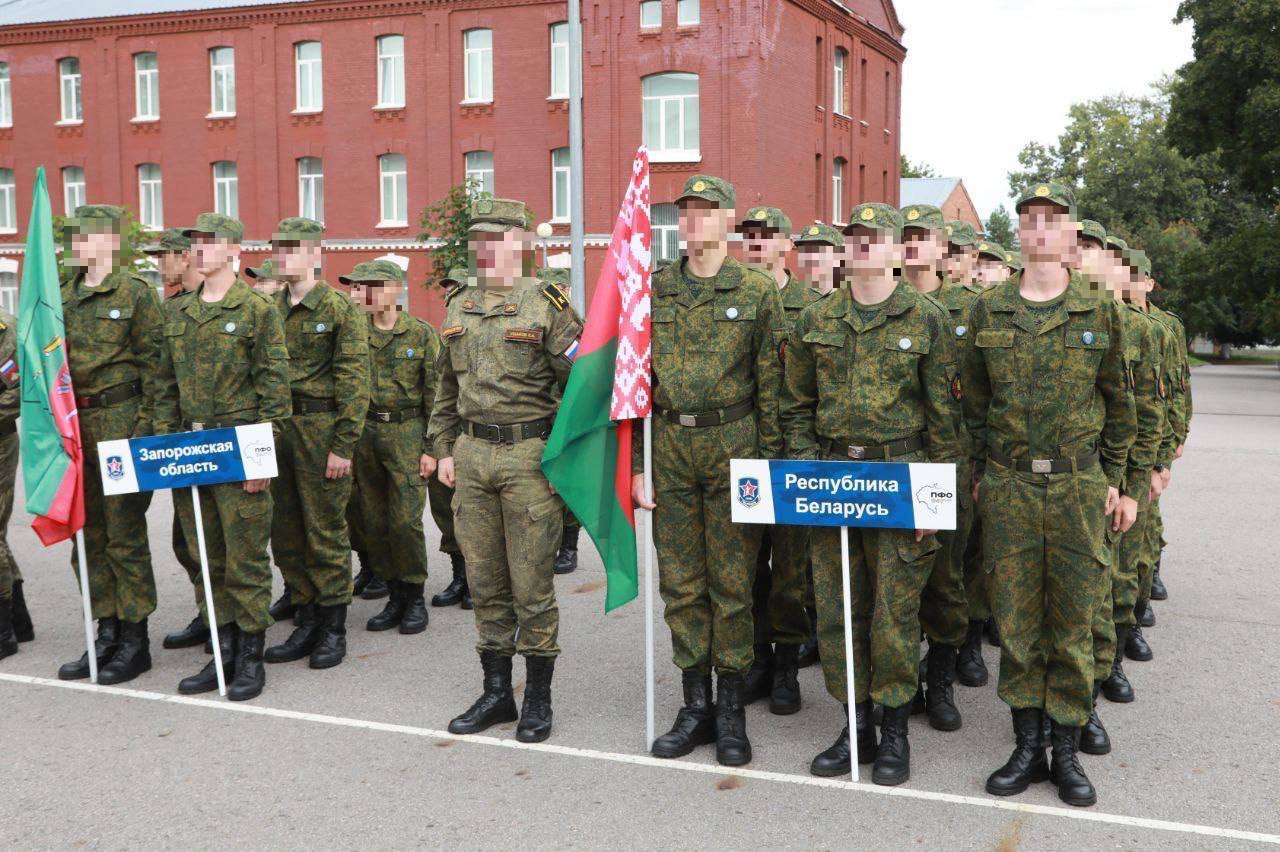
The participants of the meeting are ninth and tenth grade students of general education and cadet schools, members of military-patriotic clubs, who are focused on entering higher education institutions of the Ministry of Defence, the Russian Guard, the Ministry of Internal Affairs, the Federal Security Service and the Ministry of Emergency Situations of Russia, and serving in the Russian army. However, there is information about a young man from the temporarily occupied territory of Donetsk Region who was 13 years old at the time of participation in the gathering and had only moved up to the eighth grade.
In 2025, the Guardsman took place from 1 to 21 August and brought together a record 18 teams — a total of 360 children. Representatives from all regions of the Volga Federal District, as well as children from the temporarily occupied territories of Luhansk, Donetsk and Zaporizhzhya Regions, came to the Penza Region of Russia. For the first time, children from Brest (Republic of Belarus) took part in the gathering.
For teenagers from the temporarily occupied territories of the Zaporizhzhya Region, this is already the third such meeting: a team of 20 participants from four districts and the occupied cities of Berdyansk and Melitopol came for the first time in the summer of 2023, together with children from the DPR.
Conclusions about the involvement of children from other TOTs of Ukraine in the gathering can be drawn from reports in the Russian media:
● Autonomous Republic of Crimea: children were taken to the gathering immediately after the occupation in 2014; open sources also indicate participation in the 2016 gathering;
● Sevastopol: participated at least once — in 2017;
● Donetsk Region: children were taken away for the first time in 2015, and they are the most active participants — they have attended the gatherings at least five times (2015, 2022–2025).
● Luhansk Region: teenagers participated in the gatherings in 2016 and 2025.
As of 2025, only children from the temporarily occupied territories of the Kherson Region have not been taken to the Penza Region to participate in the Guardsman meetings.
What does the training programme entail?
In general, these gatherings demonstrate a systematic approach to the militarisation and ideological education of teenagers from TOT.
In the documents, the training programme is defined as "initial military-professional and pre-conscription training of young people," which is in fact a system for educating future soldiers for the Russian army. The organisers claim that such training "ensures the comprehensive development of the personal qualities of future defenders of the Fatherland" (i.e. Russia), their ability and readiness to fulfil their civic and constitutional duty to protect its interests in times of peace and war.
The Guardsman programme immerses participants in the real life and conditions of the modern armed forces of the Russian Federation, accustoming teenagers to strict discipline and military regime and shaping their perception of military service as the only correct path in life.
During the training, Roman Ileshenko, a high school student from the DPR, told Russian media: "In the future, I plan to serve in the army. The Guardsman military training is a great way to test your abilities, live in barracks, and take a course for young soldiers. We spent a long time preparing for the competition at school." His words illustrate how the system of militarised education effectively shapes the perception of teenagers from the TOT that serving in the Russian army is a natural path in life and instils loyalty to the army of the occupying country and a willingness to join its ranks. According to the organisers, as of 2022, after years of training, 51 participants expressed a desire to enrol in a military university in Penza, and some have already become officers in the Russian army. Currently, 26 former members of the Yunarmiya are cadets at the Military Academy, where the Guardsman training takes place.
During the closing ceremony in 2024, participants and guests were shown "heroic episodes of battles on the territory of the Special Military Operation" with the use of military equipment. At the end of the training, the guards solemnly swore an oath and joined the Yunarmiya movement. The oath "of loyalty to the Fatherland and the Yunarmiya brotherhood" was administered by the then deputy chief of the General Staff, Katerina Chizhikova.
According to Russian social media communities, this year's Guardsman meeting opened on 1 August 2025 in Penza with the participation of deputies of the plenipotentiary representative of the President of the Russian Federation in the Volga Federal District and "heroes of Russia" – participants in the "special military operation". The event was dedicated to the Year of the Defender of the Fatherland and the 80th anniversary of victory in World War II.
Internal rules prohibit participants from using smartphones and other gadgets with internet access and from leaving the meeting area without the permission of the chief.
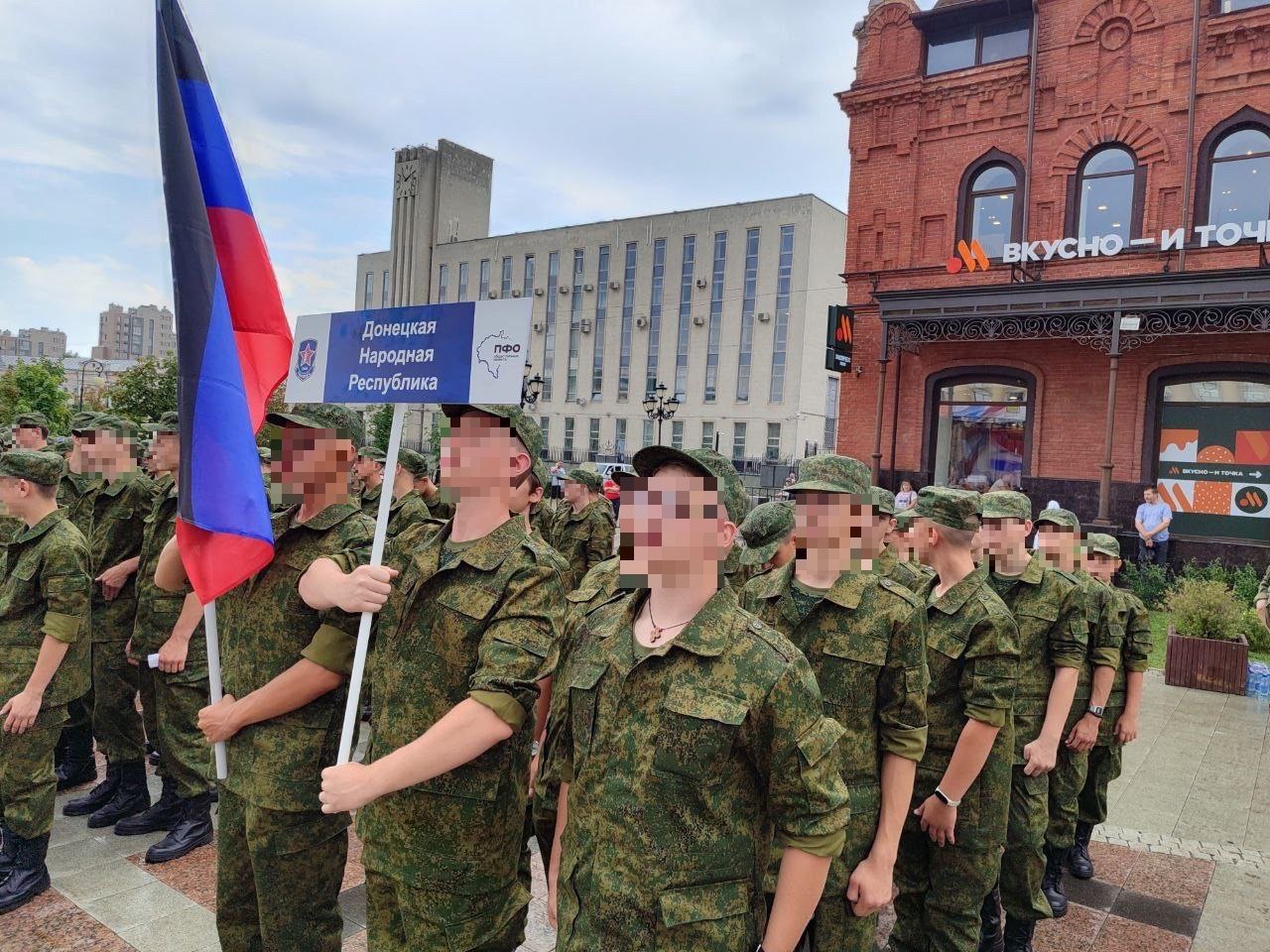
According to the organisers, over the course of three weeks, the "guardsmen" undergo comprehensive training: marksmanship, physical and drill training, including basic military training with field exercises. They acquire knowledge in military-applied disciplines, participate in sports competitions, undergo terrain orientation and get acquainted with the historical and cultural monuments of the Region.
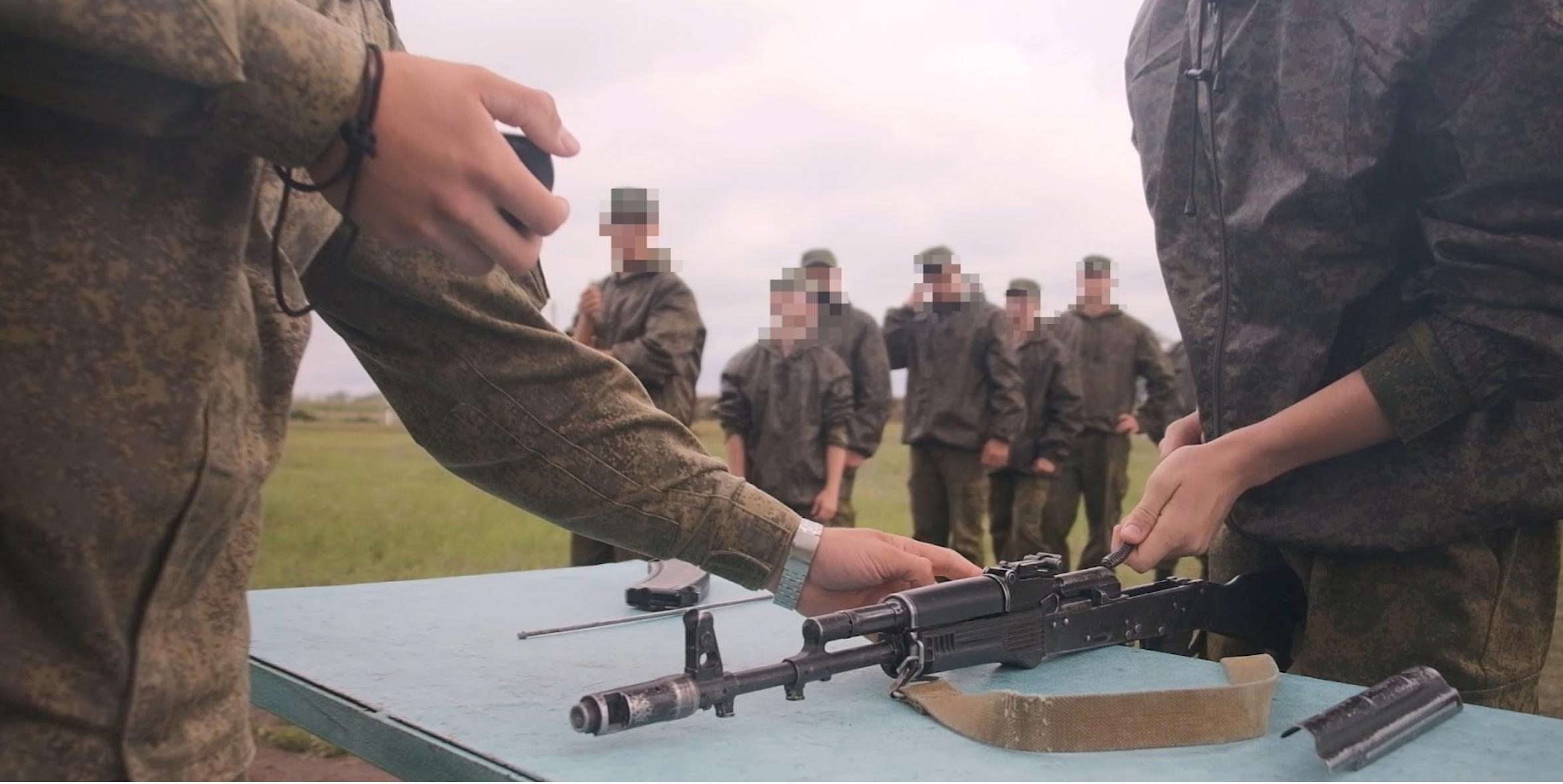
The programme includes military sports (air gun shooting, strength training, grenade throwing, etc.), as well as military-patriotic methodological work: lessons on Russian history, the basics of military affairs, and creative competitions. All activities have clear objectives: to motivate young people to serve in the army, instil strict discipline, and educate future military personnel and loyal citizens.
In addition, the Telegram channel Guardsman VFD reported that in 2025, during classes at the Start sports and training complex, teenagers learned how to operate UAVs: from piloting FPV drones in a simulator to 3D modelling and assembling quadcopters. Military personnel and veterans of the “special military operation” are also invited to meetings with participants to share their experiences and "valuable advice" with Russia's "future defenders." During such interactions, military personnel participating in the war against Ukraine, who are occupiers and participants in criminal activities, are glorified.
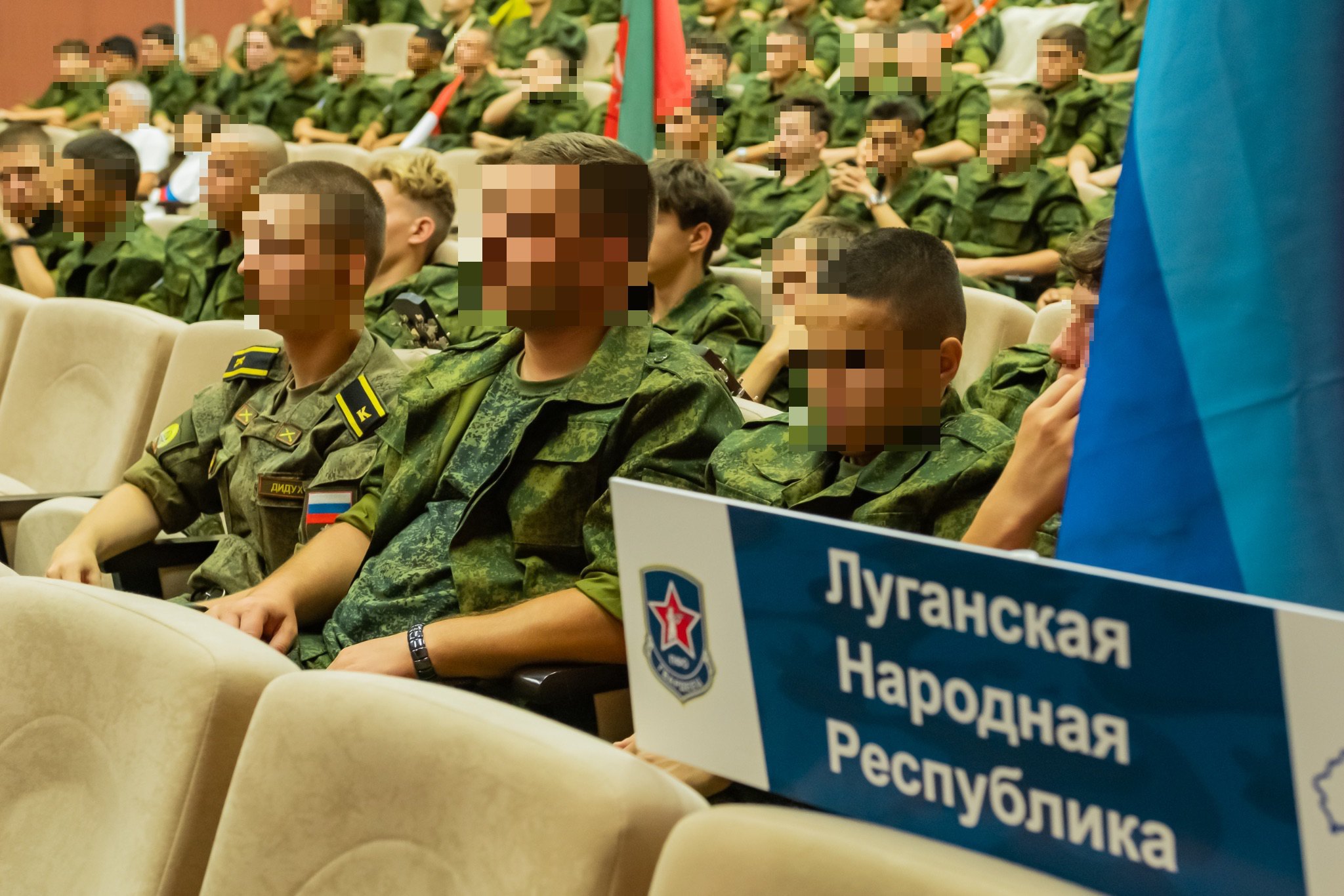
Summarising these facts, we can conclude that Guardsman and similar projects are part of Russia's systematic policy in the temporarily occupied territories of Ukraine, aimed at militarising children and young people and turning them into a mobilisation reserve for war against their own state. The military training camps are intended to foster loyalty to the Russian army, glorify the occupiers, and deliberately erase the Ukrainian identity of adolescents through manipulation and propaganda.
Instead of enjoying a normal childhood, children undergo military training, learn how to use weapons and discipline, effectively "swearing allegiance" to Russia. The militarisation of children in the temporarily occupied territories is a deliberate practice by the Kremlin that violates international humanitarian law and is aimed at establishing control over the occupied territories.







